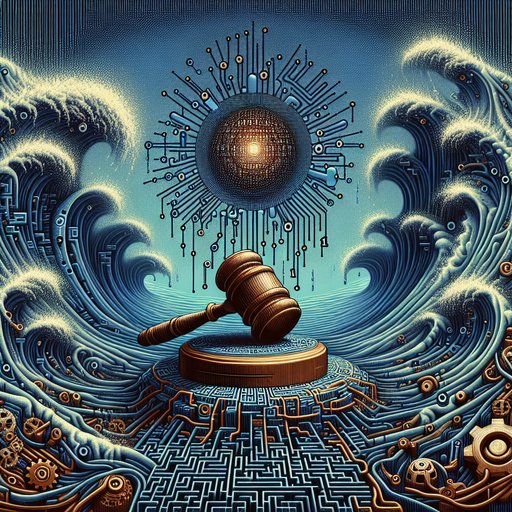 As artificial intelligence continues to surge forward, the ethical implications and policy considerations of its boundless potential summon a labyrinth of complexities. From privacy to economic transformation, the clarion call for a robust and globally harmonized regulatory framework resonates at the fore. Drawing on historical milestones and anticipating future challenges, we endeavor to unravel this Gordian knot of technology, morality, and law.
As artificial intelligence continues to surge forward, the ethical implications and policy considerations of its boundless potential summon a labyrinth of complexities. From privacy to economic transformation, the clarion call for a robust and globally harmonized regulatory framework resonates at the fore. Drawing on historical milestones and anticipating future challenges, we endeavor to unravel this Gordian knot of technology, morality, and law.
The genesis of modern AI took root in the dreams of thinkers like Ada Lovelace and Alan Turing, both envisioning the possibility of machinery that could mimic human thought and behavior. Turing, in his profound ingenuity, set the foundational stones of AI, embedding in it possibilities beyond mere robotic arms or voice assistants. As we have moved into an era where AI influences almost every facet of modern life, the trajectory of AI has rolled out complex ethical and policy conundrums. Our collective consciousness, raised by dystopian fictions and optimistic utopias alike, now deals with issues of job displacement, privacy infringements, and potential autonomous weaponry.
Leveraging historical contexts can help us understand how these ethical quandaries have emerged. AI's rapid development outpaced any chance for comprehensive regulatory mechanisms, creating a 'Wild West' scenario in industries around the globe. The early years of the Internet offer a stark reminder of technology's ability to outpace regulation, leading to the unintended proliferation of cybercrime, privacy breaches, and data monopolies. As AI follows a similar, if not steeper, trajectory as the Internet, identifying these historical parallels becomes crucial for policy development.
Possibly the grandest challenge lies in harmonizing regulations on a global scale. If the global struggle to create cohesive Internet laws serves as any indication, the road ahead for uniform AI policing is fraught with hurdles. The intricacies of AI, threaded deeply into myriad cultural, economic, and societal fabrics, require international collaboration and compromise. Efforts towards a supranational approach to AI regulation are underway, though progress has been sluggish.
The European Union's pioneering efforts in creating an AI legal framework provides a promising start, prioritizing transparency, accountability, and protective measures against harmful AI practices. Nations are gradually recognizing the urgency of formulating comprehensive AI policies. However, the balance between fostering innovation and preserving ethics remains delicate and precarious. Encouraging open dialogue amongst stakeholders - researchers, policy-makers, business leaders, and the public - is likely to illuminate the path forward.
Looking into the lens of history, acknowledging past mistakes, and appreciating our technological dexterity are key components of shaping future policies. The global community must lean into these challenges with agility and promptness. The frontier of AI is continuously expanding, and our ethics, policies, and laws must strive to keep pace. As we inch forward in this odyssey, let us remember that technology, irrespective of its profound potential, is but a tool.
Its beneficence emerges from the ethics we instill and the regulations we establish. The task ahead is daunting, but with judicious governance and shared responsibility, we can ensure that AI serves humanity's greater good.












































